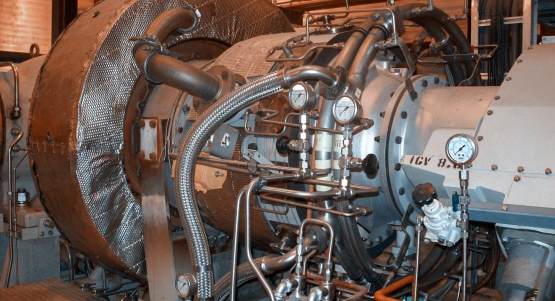
Turbine Engines and Oil Changes
Turbine engines are an essential component common to power systems, and they require proper maintenance to function correctly throughout their useful life. Whether it's a small or large system, all turbine engines require oil changes to operate safely and efficiently.
Why are Oil Changes Necessary?
Oil changes are necessary for many reasons. First, the oil in a turbine engine serves as a lubricant for the moving parts, reducing wear and tear and friction between components. Over time, however, the oil can become contaminated with debris and particles, making it less effective at lubricating the engine. Additionally, the high temperatures generated by turbine engines can cause the oil to break down, losing its ability to cool the engine effectively. Regular oil changes help ensure that the engine's moving parts remain well-lubricated and the engine is cooled efficiently.
Oil changes also help remove built-up contaminants and debris from the engine. Over time, even with high-quality filtration systems, some particles may still settle in the engine, which can cause damage. Regular oil changes help remove these contaminants, preventing them from causing harm to the engine.
How Often Should Oil Changes Occur?
The frequency of oil changes for a turbine engine depends on the engine's specifications, its usage, and the oil type being used. Some require an oil change every 8000 hours of operation. Some manufacturers may recommend oil changes based on a certain period, such as monthly or annually. It's crucial to follow the manufacturer's recommended maintenance schedule for the specific turbine engine being used.
What are the Consequences of Neglecting Oil Changes?
Neglecting regular oil changes can cause serious consequences, leading to engine damage and even failure. Over time, the engine's moving parts can wear down, causing significant damage and reducing the engine's efficiency. The engine may require more frequent repairs and component replacements, leading to increased maintenance costs. Additionally, the engine's efficiency may decrease, resulting in increased fuel consumption and decreased power output.
Conclusion
All turbine engines require regular oil changes to maintain their efficiency, prolong their lifespan, and prevent serious engine damage. Neglecting these necessary oil changes can result in increased maintenance costs and reduced performance, leading to further problems down the line. Follow the manufacturer's recommended maintenance schedule and monitor oil levels and quality to ensure the turbine engine runs safely and efficiently for years to come.
--
For more information about maintaining and overhauling turbine or reciprocating engines, please contact TURBINE-X Energy.



 Back
Back
 Head Office
Head Office USA Office
USA Office